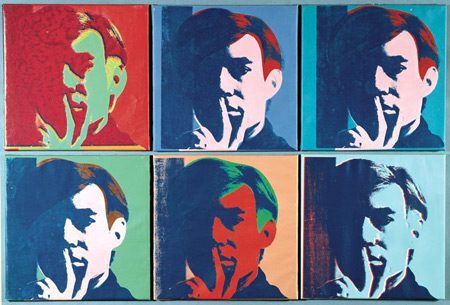
Who is the world’s most famous living visual artist? Pause. While you’re mulling that over, let’s look at the question more closely. It doesn’t ask who is the best or greatest living artist, or the most influential or controversial. It asks only who is the most famous, and therefore an element of celebrity culture is implicit. It also asks us to consider what a visual artist is: are they solely someone within the realm of the so-called fine arts (photography, painting, sculpture, etc.), or might it include architects, film directors, fashion designers, actors and actresses? Well, more questions than answers; but for years I’ve been putting this question to people I meet casually, particularly those who are not part of the art world. It seems instructive to note that some 95% of the time those latter individuals, professional people of every stamp, are unable to name a single living visual artist, much less a famous one. Sometimes they blurt out the name of an artist long dead, Georgia O’Keeffe or Andy Warhol for example. Sometimes they take refuge behind naming their high school art teacher or a neighbor who takes photographs. But in most cases there is a long silence and a blank stare, and it seems instructive to me that more people can list members of the Rolling Stones or actors on "Friends" than living visual artists.
I think this means something. I think the world changed on February 22, 1987, the day Andy Warhol died, the last visual artist who was a crossover personality, a mainstream celebrity, famous for, well, being famous, with a name and visage known to millions of people all over the world. When Warhol died an unbroken line that probably went as far back as Giotto ended; before Warhol, Pablo Picasso was world famous dating back to the 1930s. In centuries past most of their contemporaries knew the names of Rodin, Manet, Rubens, Ingres, Michelangelo, Bernini and artists we’ve largely forgotten such as Canova, Meissonier, Le Brun and Reynolds, all titans of their time. But no more.
There is no visual artist alive today that more than three or four out of 100 dentists or stockbrokers could name. Do you think they would recall Jeff Koons’ name, or Ai Weiwei, or Frank Gehry, Dale Chihuly, Damien Hirst, Cindy Sherman, David Hockney? Try it yourself — they won’t. (And would it make you feel better or worse to know that until their deaths in 2012 the artists cited to me far more often than, say, Jasper Johns, were Thomas Kinkade and Leroy Neiman?) All this inevitably reflects a certain marginalization of the art world, when living visual artists are no better known to the public than contemporary opera composers. They have lost a platform to touch the mass consciousness, broadly perceived as elitist practitioners of a hyper-specialized profession that leaves mainstream culture relatively untouched and unmoved. There’s no instantly recognizable talking head that can speak for art, who reminds the public that art still exists, still matters. Contemporary art has no face — literally!
Why did this happen? Why can Anselm Kiefer walk down the streets of any city on this planet without being recognized while no Kardashian can? The answer seems largely to lie in the modes of transmission within culture, that performative pursuits where the individual is physically the vehicle of their activity and present in its execution and display — acting, singing, athletics, etc. — are easy to communicate through film and television, while in the majority of cases a visual artist makes objects and is not present in their display. If you watch Brad Pitt act or Aretha Franklin sing you actually see them and feel that you come to know them, but if you access an artwork by Jeanne Gang or Lari Pittman you do not; the artist is almost always physically absent. (Indeed, the most ‘famous’ spokespeople for visual art recently have been individuals such as the recently deceased Robert Hughes, high-energy personalities perfect for TV chatfests.) Who’s the world’s most famous living visual artist? This seems an illogical reply, but it’s the best I can do — no one is.
